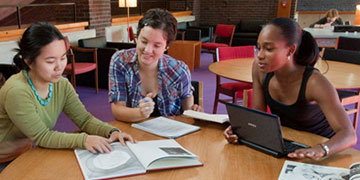To access this work you must either be on the Smith College campus OR have valid Smith login credentials.
On Campus users: To access this work if you are on campus please Select the Download button.
Off Campus users: To access this work from off campus, please select the Off-Campus button and enter your Smith username and password when prompted.
Non-Smith users: You may request this item through Interlibrary Loan at your own library.
Publication Date
2024-5
Document Type
Capstone
Study Type
ENV 312: Sustainable Solutions
Department
Environmental Science and Policy
Advisors
Camille Washington-Ottombre
Abstract
While Smith has a strong commitment to decarbonization and has invested in renewable energy initiatives, the institution currently lacks a Climate Justice Action Plan (CJAP). This signifies a gap in addressing the equity and social justice dimensions of climate action. Environmental Science & Policy (ES&P) students have played a critical role in pushing for climate action at Smith. Several student projects have advocated for the development of a CJAP. Additionally, the Committee on Sustainability and the Vice President for Equity and Inclusion have shown initial interest in incorporating climate justice into planning, but concrete steps haven't been taken yet. Lastly, collaboration between administration, faculty, students, and community members on climate justice issues seems limited.
Our broader theme was "Climate Justice: Beyond the Gates" which inspired us to create a project that actively and meaningfully connects the Smith community with organizations in our local area whose mission is centered around climate justice. We decided to build a framework that establishes work-study positions for students to gain hands-on experience outside the gates of Smith College and work on climate justice issues as part of their personal and career interests.
We followed a four-part methodology to accomplish our project. First, we held informational internal interviews with CEEDS staff to explore possibilities and the feasibility of our project. The second part included community outreach efforts and holding interviews with representatives from organizations we were interested in. After confirming that the organizations were open and interested in hosting work-study positions for students, we created and distributed a survey to the student body to gauge student interest in those jobs. The survey included questions regarding reasoning for interest, eligibility, and more. Lastly, we combined all the information gathered from the first three steps to create an implementation plan comprised of five phases which can be used as a tool to implement similar projects in the future.
We found that both students and organizations have a great interest in collaborating with each other on projects related to climate justice issues. The organizations we worked with, Grow Food Northampton, the Food Bank of Western Massachusetts, and the Citizens Climate Lobby, look for passionate students to work with them on a variety of projects, from social media marketing to farming and developing educational materials for the public. Students, on the other hand, are particularly excited to broaden their horizons and work off-campus to get involved in real, hands-on experiences which they hope will help them grow personally and professionally.
Rights
© 2024 The Authors
Recommended Citation
Fizer, Abigail Morgan; Prassa, Dimitra; and Smith, Becca, "Climate Justice & Community Collaboration: A Work-Study Proposal" (2024). Capstone, Smith College, Northampton, MA.
https://scholarworks.smith.edu/other_projects/239
Smith Only:
Off Campus Download


